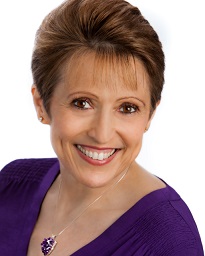
Before reading The Body Keeps The Score, Brain Mind and Body In The Healing of Trauma I thought childhood trauma could only happen when a child was sexually or physically abused. Yet, here I was, reading page after page by leading trauma expert Bessel van der Kolk, M.D., who stated that I didn’t have to be sexually or physically abused to experience trauma.
According to Van der Kolk, being raised by an alcoholic, depressed mother who went on drunken tirades against her husband on a regular basis provided more than enough toxic stress for me to become traumatized. Realizing this for the first time was totally mind-blowing.
After experiencing so many epiphanies after reading The Body Keeps the Score, I felt compelled to read everything I could get my hands on about childhood trauma and how to heal. I also began researching many subtopics of trauma, including the link between trauma and various trauma symptoms, such as addiction, obesity, anxiety, depression, and relationship difficulties.
I was also drawn to studying trauma’s impact on attachment styles, resilience, and post-traumatic growth. This research played a key role in helping me better understand how trauma had impacted me and what types of trauma-based therapies and practices would best serve my healing.
Over a five-year period, I listened to or read dozens of books and blogs, visited countless websites, and attended several conferences, conventions, and movie screenings related to childhood trauma. I went through family photos and spoke to family members to gain a deeper understanding of what had happened to me and what had happened to my parents growing up.
 In many ways, I felt like a forensic psychologist searching for and sifting through mountains of clues and evidence from all the books and media I found to make sense of what had happened to me. It was this discovery that lit a fire under me to write It’s Not About Food, Drugs, or Alcohol: It’s About Healing Complex PTSD.
In many ways, I felt like a forensic psychologist searching for and sifting through mountains of clues and evidence from all the books and media I found to make sense of what had happened to me. It was this discovery that lit a fire under me to write It’s Not About Food, Drugs, or Alcohol: It’s About Healing Complex PTSD.
In it I share what I experienced as I uncovered layer after layer of how childhood trauma had impacted me throughout my life. I discuss the context of what led to my trauma, how it changed my brain and influenced my behavior, identity and worldview, how I coped, and who I became. Most importantly, I share what I did to heal.
C-PTSD is a more severe form of Post-Traumatic Stress Disorder-PTSD. It is delineated from this better-known trauma syndrome PTSD by five of its most common and troublesome features:
is the most frequently used diagnostic term I’ve seen used for childhood trauma. The term was coined in 1992 by psychiatrist and trauma expert Dr. Judith Herman in her book Trauma & Recovery. However, it wasn’t until 2018 that C-PTSD was officially recognized when it was included in The World Health Organization’s -WHO’s ICD-11, a medical diagnostic manual recognized by the medical community.
is used by many clinicians and psychiatrists when referring to childhood trauma. This term was developed by a team led by trauma expert and psychiatrist Bessel van der Kolk to be included in The Diagnostic and Statistical Manual of Mental Disorders-5 (DSM-5) as a childhood trauma diagnosis but was denied. Although DTD wasn’t included in the DSM-5, many trauma experts and practitioners use it in current literature when referring to the sequelae of childhood trauma.
The three PTSD symptom criteria of:
And three disturbances of self-organization (DSO):
Below are the terms trauma experts use for childhood trauma and the criteria that must be met to receive a childhood trauma diagnosis.
I hear clinicians and colleagues often refer to childhood trauma as complex trauma, C-PTSD, complex post-traumatic stress disorder, childhood trauma, trauma, developmental trauma, childhood PTSD, and PTSD.
I predominantly refer to childhood trauma as complex PTSD, complex trauma, and C-PTSD. However, I also use the terms trauma, childhood PTSD, and childhood trauma.
I, along with many of my colleagues, use the terms survivor and trauma survivor when referring to people who have experienced significant adversity in childhood or who have been diagnosed with C-PTSD or PTSD.
Tragically, more often than not, survivors are misdiagnosed with C-PTSD symptom-related mental and behavioral health disorders. This was certainly true for me. Up until my mid-fifties, instead of being diagnosed with C-PTSD, I was diagnosed with six different disorders. These include generalized anxiety disorder, dysthymia, attention deficit hyperactivity disorder- ADHD, binge eating disorder, morbid obesity (has since been renamed to class III, or severe obesity) and alcohol and substance use disorders. The truth is, all of these disorders were merely symptoms of my real diagnosis: C-PTSD.
It was astounding when I first learned, according to the CDC-Centers For Disease Control:
This doesn’t even cover emotional abuse, neglect, or other types of adversity children frequently experience that cause them to develop trauma. I cover these topics in-depth in my writing about the landmark ACE-adverse childhood experiences study.

Learn How To Heal From Complex PTSD
Learn How To End Your Struggle With Food, Weight, Substances & Relationships
